Nestled along the cobblestone streets of Boston, the North End stands as a living testament to centuries gone by, whispering tales of resilience, cultural amalgamation, and the indomitable spirit of its inhabitants.
This historic neighborhood, with its narrow alleys and red-bricked charm, unfolds a captivating narrative that weaves through the very fabric of American history.
From the earliest settlers to waves of immigrants seeking refuge, the North End has witnessed and embraced change, retaining a unique identity as a vibrant enclave. In this exploration, we delve into the history of North End Boston.
We’ll explore the intriguing history that shaped this community, uncovering the layers of its past that linger in every corner.
Join us as we navigate through time, uncovering the stories etched into the brickwork and streets, revealing the North End Boston’s enduring legacy. Discover the echoes of North End’s past, where history breathes.
History of North End Boston
Nestled in the heart of Boston, the North End stands as a living testament to centuries of history that have shaped this vibrant neighborhood.
From its colonial origins to the diverse tapestry it is today, the story of North End Boston is a captivating narrative of resilience, cultural evolution, and community spirit.
Colonial Roots and Early Settlement
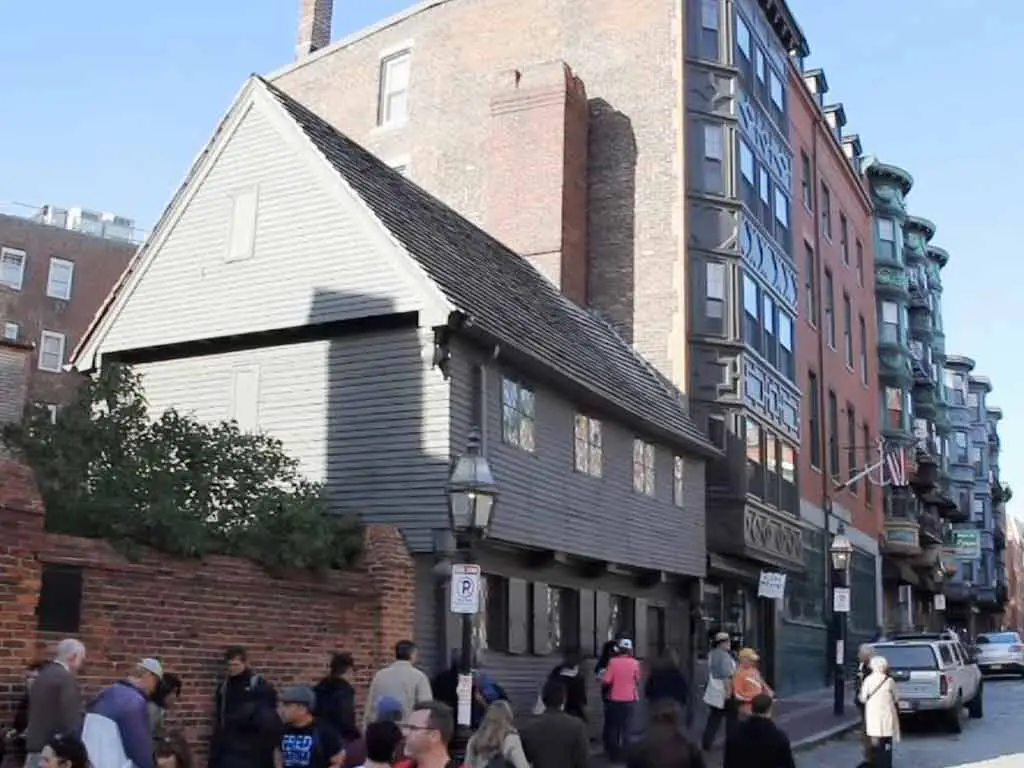
The history of North End Boston dates back to the early 17th century when English Puritans first settled in the area. Over time, the neighborhood became a bustling center of trade, with waterfront industries flourishing along the docks.
The iconic Paul Revere House, built in 1680, still stands proudly as a symbol of this early colonial era.
Immigration and Cultural Shifts
In the 19th century, North End Boston underwent a transformative period with an influx of Irish immigrants fleeing the Great Famine.
The neighborhood’s demographics continued to evolve as Italian immigrants arrived, leaving an indelible mark on the community.
The rich cultural tapestry of North End became woven with traditions, cuisines, and customs from these diverse backgrounds.
The Rise of Little Italy
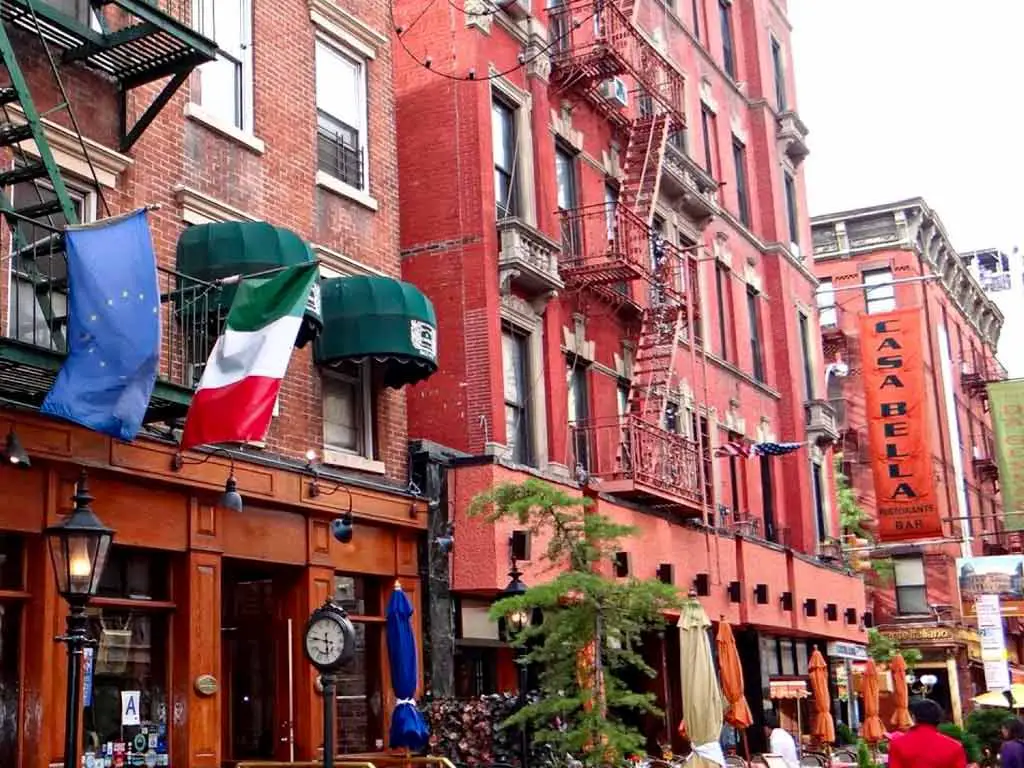
North End’s Hanover Street emerged as the heart of the Italian-American community, earning the neighborhood the nickname “Little Italy.” Delis, bakeries, and trattorias lined the streets, creating a sensory experience that still echoes in the present.
The Old North Church, made famous by Paul Revere’s midnight ride, became a cultural landmark amid this evolving landscape.
Urban Renewal Challenges
In the mid-20th century, North End Boston faced challenges with urban renewal efforts that threatened its historic character.
The construction of the Central Artery and the demolition of some historic structures sparked community activism, leading to the preservation of many architectural gems and the revitalization of the neighborhood.
Contemporary North End
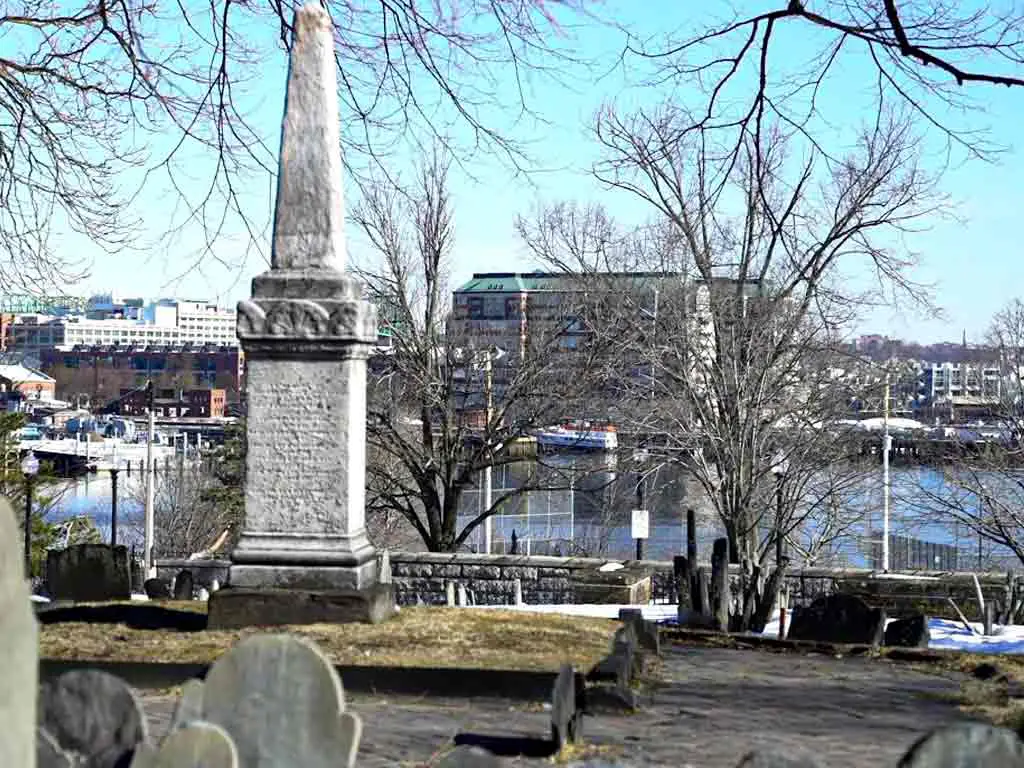
Today, North End Boston stands as a dynamic blend of old-world charm and modern vitality. The narrow streets, adorned with gas lamps and adorned facades, transport visitors back in time.
Historic sites such as the Paul Revere House, Old North Church, and Copp’s Hill Burying Ground offer glimpses into the past.
The North End’s culinary scene remains a highlight, with traditional Italian eateries, pastry shops, and seafood restaurants drawing both locals and tourists.
Festivals like the Fisherman’s Feast and Saint Anthony’s Feast celebrate the neighborhood’s cultural heritage, fostering a sense of community that transcends generations.
Preserving the Legacy
Efforts to preserve North End’s historical legacy continue, with local organizations and residents working together to protect the neighborhood’s unique character.
The history of North End Boston is not just confined to the pages of textbooks; it lives on in the cobblestone streets, historic buildings, and the stories passed down through generations.
As we reflect on the history of North End Boston, we discover a resilient community that has weathered the tides of time, embracing change while cherishing its heritage.
This neighborhood, with its deep roots and ever-evolving identity, remains a testament to the enduring spirit of Boston’s history.
What’s the Best Way to Take a Tour of the North End of Boston?
Exploring the historic North End of Boston is a journey through time and culture, with narrow cobblestone streets, charming architecture, and a rich culinary heritage awaiting discovery.
To make the most of your visit, consider these immersive ways to tour the North End and uncover its fascinating stories.
Guided Walking Tours
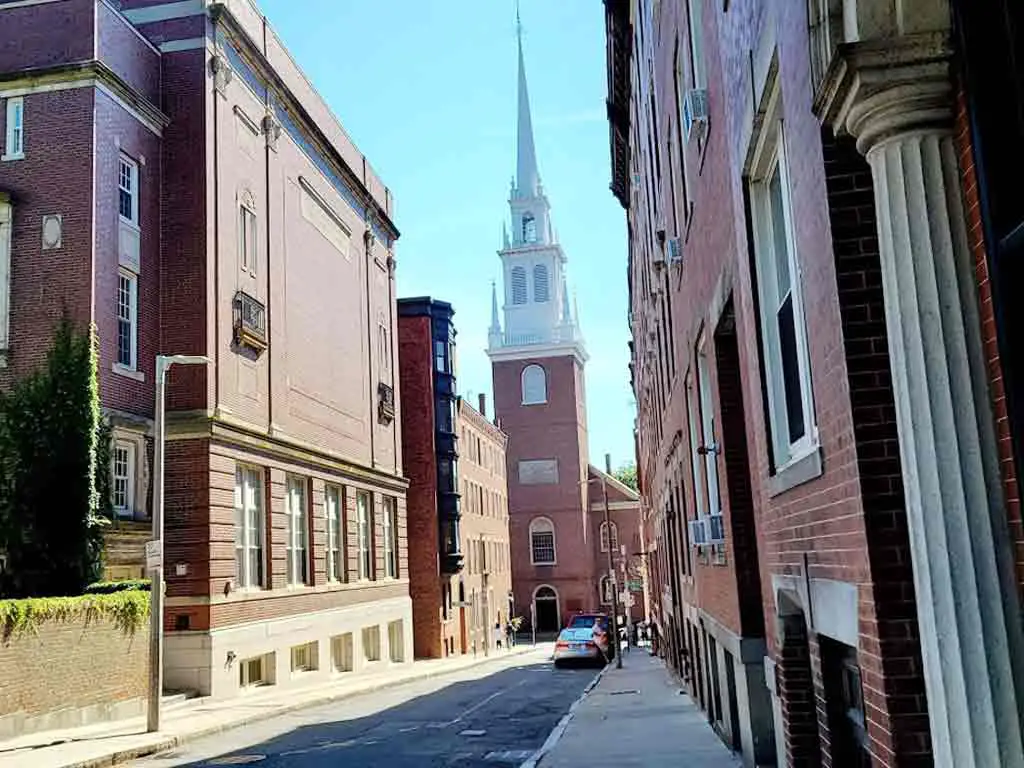
Engage with the history of North End Boston by joining a guided walking tour. Knowledgeable guides lead you through the labyrinth of streets, sharing captivating tales of the neighborhood’s past.
These tours often include visits to iconic landmarks such as the Paul Revere House, Old North Church, and Copp’s Hill Burying Ground.
Some tours also delve into the immigrant experience, providing insights into the Irish and Italian communities that have shaped the North End’s identity.
Freedom Trail
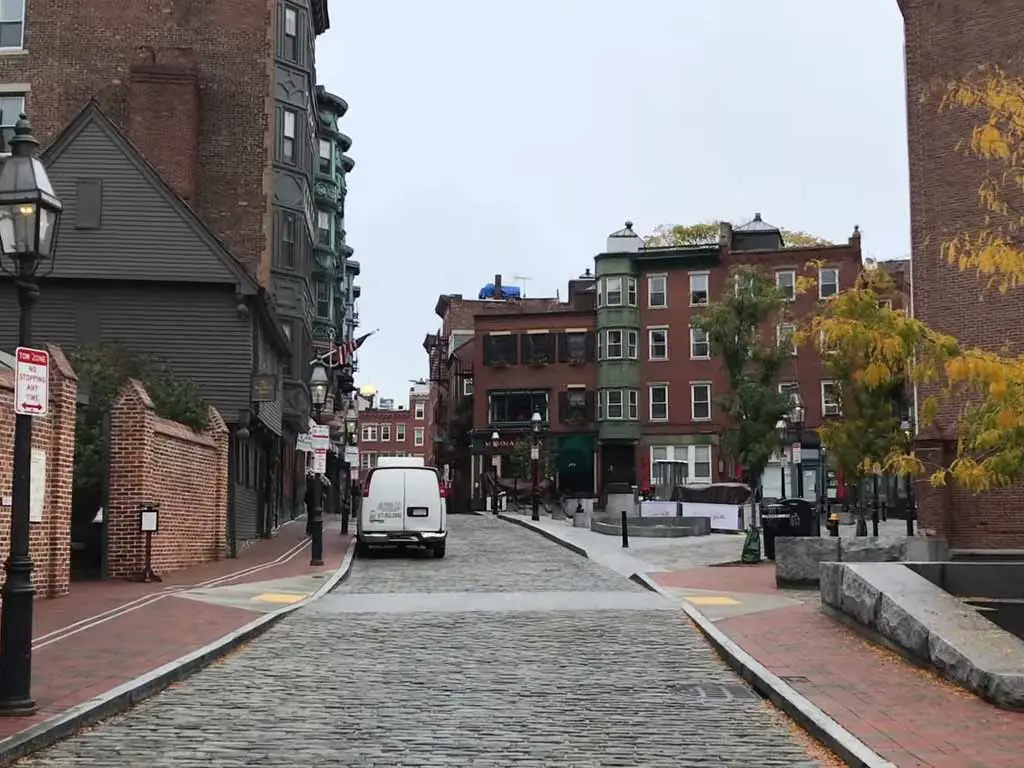
North End is an integral part of Boston’s famous Freedom Trail, a 2.5-mile red-brick path that winds through historic sites.
Starting at the Boston Common, the trail takes you through 16 significant landmarks, including the Massachusetts State House and Faneuil Hall, before concluding in the North End at the Old North Church.
This self-guided tour allows you to explore at your own pace while absorbing the revolutionary history that unfolds along the way.
Culinary Tours
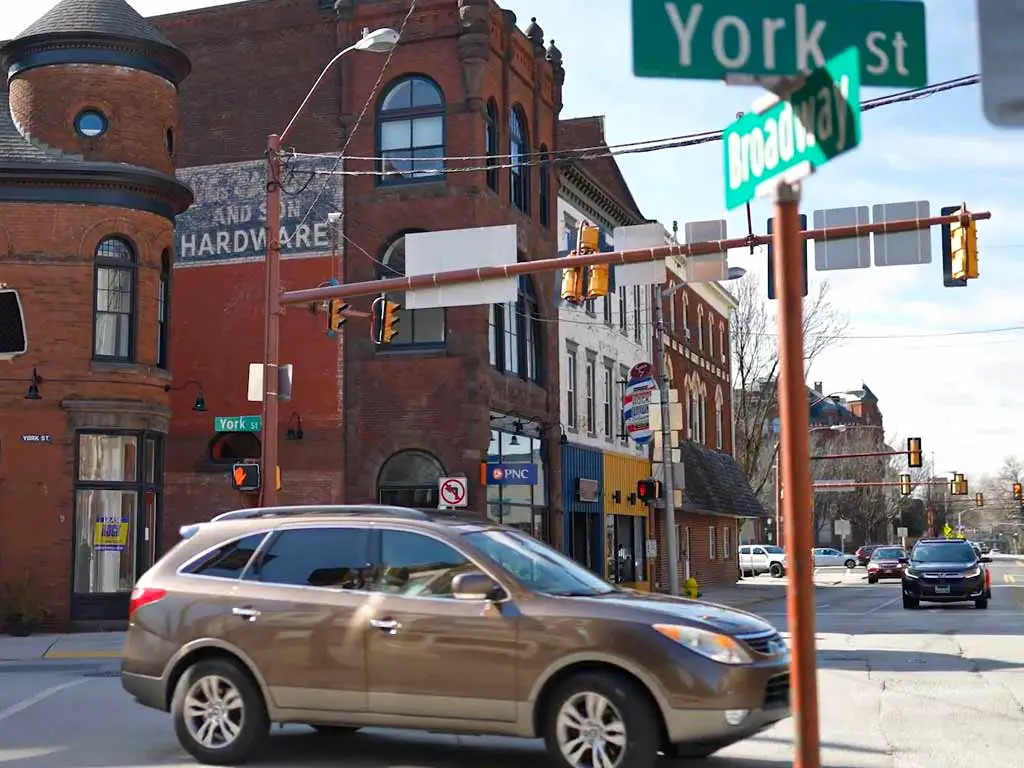
North End is renowned for its delectable Italian cuisine, and a culinary tour offers a mouthwatering exploration of the neighborhood’s gastronomic delights. Walk through Hanover Street and beyond, sampling traditional dishes, pastries, and espresso from local eateries.
Learn about the culinary traditions that have been passed down through generations, making North End a haven for food enthusiasts.
Freedom Trail Foundation’s Historic Pub Crawl
For a unique blend of history and entertainment, consider the Freedom Trail Foundation’s Historic Pub Crawl. This guided tour takes you to historic pubs in North End, where you can enjoy local brews while hearing stories of Boston’s revolutionary past.
It’s a lively and social way to experience the neighborhood’s history while savoring the ambiance of its iconic taverns.
Self-Guided Exploration
If you prefer a more flexible itinerary, embark on a self-guided tour of North End. Armed with a map and perhaps a guidebook, wander through the streets at your own pace.
Stop by the Paul Revere Mall, admire the architecture, and soak in the atmosphere of this charming neighborhood. Many historic sites have informative plaques providing details about their significance.
Old North Church Lantern-Lighting Experience
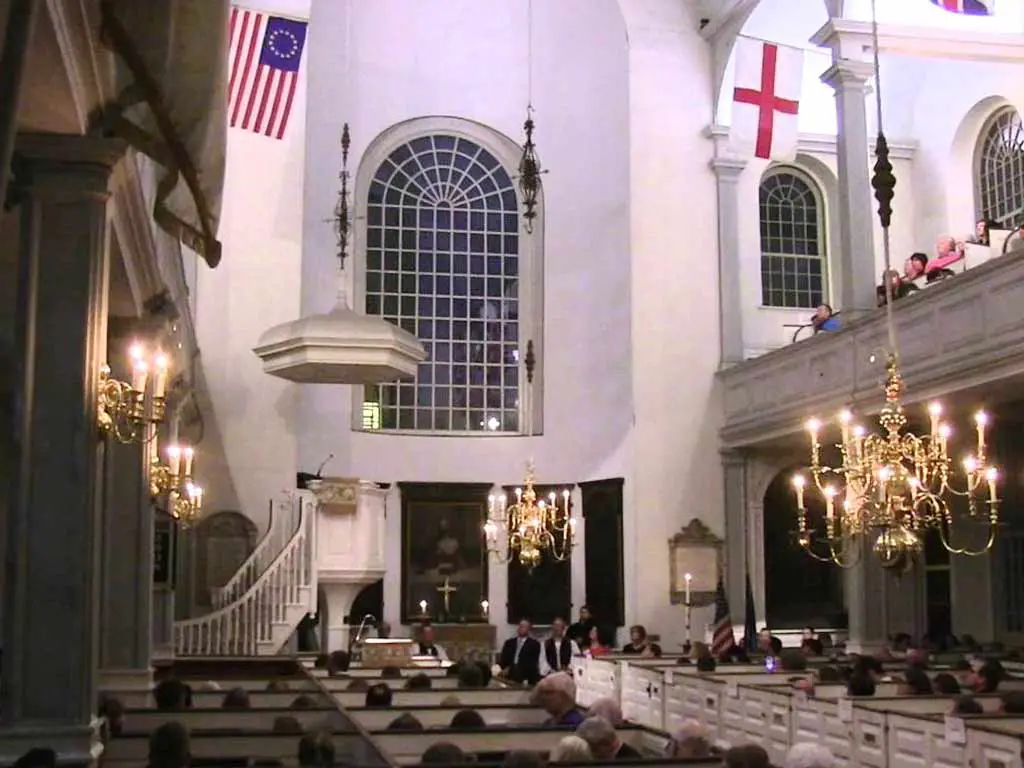
Gain a unique perspective on North End’s history by participating in the Old North Church Lantern-Lighting Experience.
This immersive activity allows you to climb to the top of the church’s steeple and light a lantern, just as Paul Revere did during his legendary ride.
The panoramic views of the neighborhood and the city skyline make this a memorable and educational experience.
North End Neighborhood Bike Tour
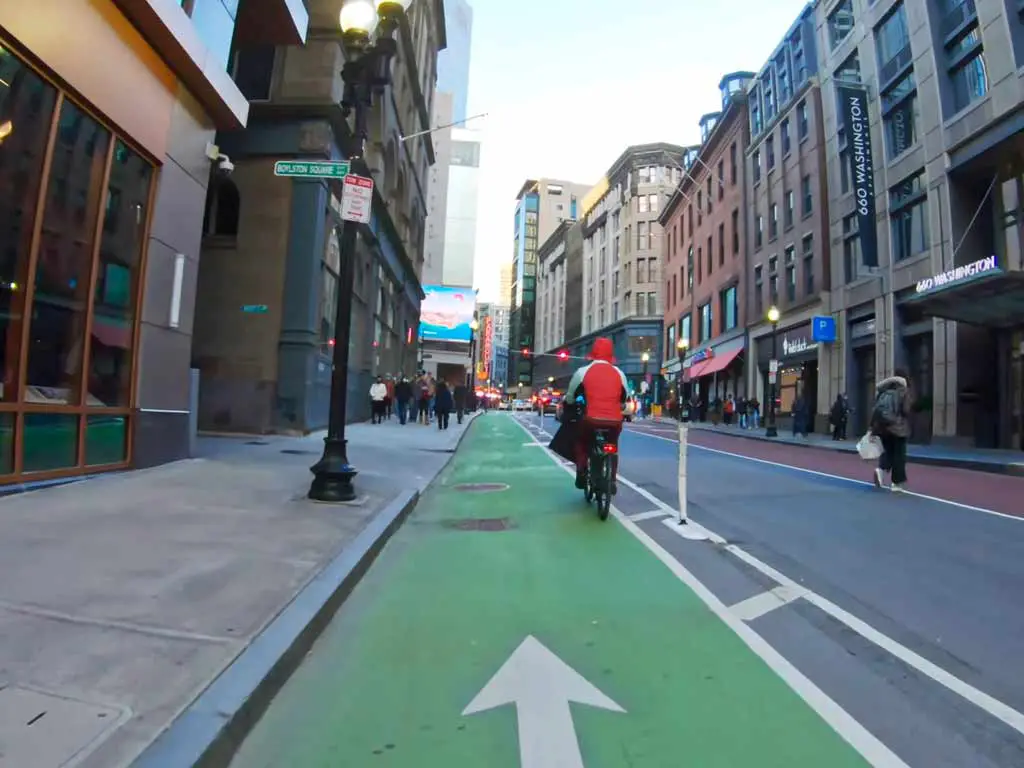
For a different mode of exploration, consider a bike tour of the North End. Pedal through the streets while a guide shares insights into the neighborhood’s history.
This active and engaging tour allows you to cover more ground and provides a different perspective on the landmarks and hidden gems of the North End.
Attend Neighborhood Festivals and Events
Plan your visit to coincide with North End’s vibrant festivals and events. The Fisherman’s Feast and Saint Anthony’s Feast are annual celebrations that showcase the neighborhood’s cultural heritage.
Participating in these events allows you to experience the lively atmosphere and traditions that define North End.
Explore Waterfront Attraction
Extend your North End exploration by taking a stroll along the waterfront. Enjoy views of the Boston Harbor and visit attractions like Christopher Columbus Park. This maritime perspective adds another layer to the neighborhood’s story, connecting its history to the sea.
Engage with Locals
To truly grasp the essence of North End, engage with locals. Enhance your experience by interacting with locals, and immerse yourself in the vibrant community to gain unique insights into North End’s past and present.
Visit neighborhood shops and strike up conversations with residents. Locals often have unique insights and personal stories that enhance your understanding of North End’s past and present.
FAQs
What is the significance of the Old North Church in North End Boston’s history?
The Old North Church holds immense historical importance as the location from which Paul Revere’s lantern signal was sent during his midnight ride, marking the beginning of the American Revolution. It stands as an iconic symbol of patriotism and resilience in North End.
How did the North End become known as “Little Italy”?
The transformation of North End into “Little Italy” began in the late 19th and early 20th centuries with a significant influx of Italian immigrants.
The neighborhood became a cultural hub, preserving and celebrating Italian traditions, cuisine, and community, earning its distinctive nickname.
What are some must-try dishes in North End’s Italian restaurants?
North End is a haven for Italian cuisine enthusiasts. Must-try dishes include classic pasta dishes like homemade ravioli, savory cannoli for dessert, and traditional Italian seafood specialties such as fra diavolo or cioppino.
How has North End preserved its historic character amidst urban development?
North End faced challenges during mid-20th-century urban renewal efforts, but community activism played a crucial role in preserving its historic character.
Locals rallied to protect iconic structures, leading to the retention of the neighborhood’s charm and architectural heritage.
Are there annual events or festivals in North End that visitors should plan around?
Yes, North End hosts vibrant annual events and festivals. The Fisherman’s Feast and Saint Anthony’s Feast are two notable celebrations that showcase the neighborhood’s cultural heritage. These events feature processions, live music, delicious food, and a lively atmosphere, offering a unique experience for visitors.
Conclusion
The history of North End Boston emerges as a captivating tale of resilience, diversity, and community.
From its early colonial roots to the waves of Irish, Italian, and other immigrant groups that enriched its cultural mosaic, the North End has stood as a testament to the enduring spirit of its people.
As we trace the timeline of this historic neighborhood, we find a tapestry woven with stories of hardship, triumph, and shared identity.
The iconic architecture, the aroma of traditional cuisines lingering in the air, and the interwoven relationships among its tight-knit residents all contribute to the unique character of North End.
Exploring the history of North End Boston is not merely a journey through time but an immersion into the collective memories that have shaped this community into the vibrant and culturally rich tapestry it is today.
Jaclyn Lowe